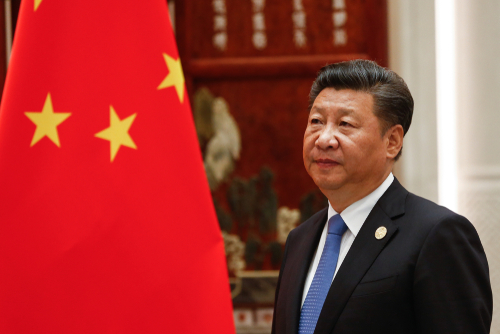
In a recent turn of events, the anti-war feminist group Codepink has come under scrutiny for its seemingly contradictory stance on China’s human rights record. Despite fervent denials of receiving secret funding from Beijing, the group’s refusal to condemn the mass detention of Uyghurs has sparked controversy and raised questions about their motivations.
House Republicans have initiated an investigation into Codepink’s connections with the Chinese Communist Party (CCP), prompted by concerns over the group’s advocacy and financial ties. This probe follows allegations that Codepink may have failed to register as a foreign agent, which is required by law if an organization is representing the interests of a foreign government.
“The letter, signed by 10 GOP members of the Natural Resources Committee, said they are 'deeply concerned' with Code Pink's ties to the CCP, and probing whether it has illegally failed to register as a foreign agent.”https://t.co/jidcNJaUNp
— House Committee on Natural Resources (@NatResources) November 16, 2023
Codepink’s shift in narrative regarding China is particularly noticeable since the marriage of its co-founder Jodie Evans to Neville Roy Singham, a tech entrepreneur with significant connections to CCP-affiliated entities. The group, which once openly criticized China’s treatment of its Muslim Uyghur minority, now hosts a campaign titled “China is Not our Enemy,” emphasizing the dangers of escalating hostilities with China rather than addressing human rights abuses.
The group’s other co-founder, Medea Benjamin, known for her history of high-profile protests, has labeled the accusations of CCP influence as ‘nonsense’ and ‘insane.’ Meanwhile, West Coast campaigner Cynthia Papermaster has dismissed the claims as ‘libelous, utter garbage,’ defending Codepink’s mission as a peace activist organization.
CodePink and affiliates, Muslim Brotherhood / CAIR and CCP are funding the riots https://t.co/l5QonpNHf1
— Robert Bowes (@Robert_B_Bowes) November 17, 2023
However, when pressed on the issue of the Uyghurs, Papermaster’s response was evasive. She claimed not to recall any specific Codepink campaign or stance on the Uyghurs, despite the group’s previous vocal opposition to China’s policies. Her comments about having heard both of repression and freedom in China have left many perplexed about the group’s true position on the matter.
This ambiguity comes at a time when international concern over China’s human rights practices, particularly in the northwestern province of Xinjiang, is at an all-time high. Reports of forced sterilizations, mass detentions, and other abuses against the Uyghur population have drawn widespread condemnation, yet Codepink’s voice on these issues seems to have softened considerably.
Further complicating matters is the financial backing Codepink appears to receive from Singham’s organizations. Since Evans’ marriage to Singham, a substantial portion of Codepink’s donations have been traced back to his groups. Singham himself has been linked to efforts that align closely with Chinese government interests, including producing media content that echoes CCP narratives.
Critics argue that Codepink’s current rhetoric could be seen as downplaying the severity of China’s human rights violations. The group’s focus on preventing a military confrontation with China, while noble in its anti-war sentiment, does not absolve it from addressing the pressing human rights concerns within the country.
As the investigation into Codepink’s activities and affiliations continues, the group’s stance on China remains a contentious topic. The juxtaposition of their past and present positions on China’s human rights record is a stark reminder of the complex interplay between activism, politics, and international relations.












